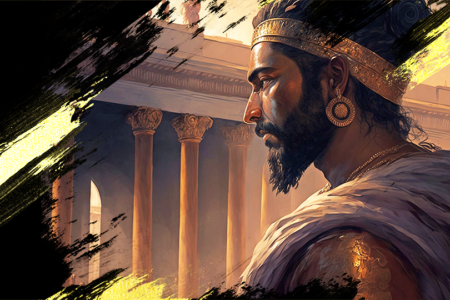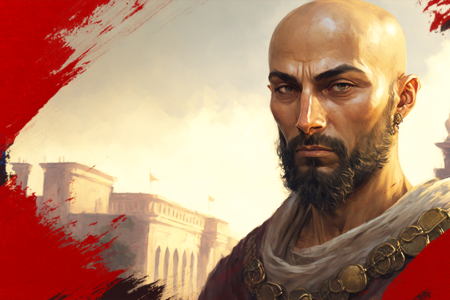Behind the Book
Reading the book of Esther is like reading a novel filled with suspense. Chock-full of intrigue, heroism, pathos, and deception, it holds your attention from beginning to end.
The story revolves around four major characters: King Ahasuerus (Xerxes I) of Persia; Esther, a Jewish girl; Mordecai, Esther’s cousin who raised her; and Haman, the villain and chief advisor to the king.
Told by Mordecai to keep her Jewish identity a secret, Esther becomes queen of Persia, replacing Queen Vashti. Haman hates Mordecai and plots to kill him and annihilate all the Jewish people in the Persian Empire, which, at the time, meant all the Jewish people in the world.
Background and Setting
The Persian Empire emerged under Cyrus the Great who conquered the Median and Babylonian Empires and extended his rule from Egypt through Mesopotamia and all of India. A clay cylinder (the Cyrus Cylinder) found in Babylon in 1879 tells how Cyrus overthrew Babylon in 539 BC.
Cyrus differed from other emperors in that he showed mercy, respect, and grace to the kings and nations he conquered. He often allowed the conquered kings to guide their own people, albeit under his rule, and let them practice their religion.
Persia (today, Iran) dominated the world from 539 to 331 BC, during which the events recorded in the book of Esther took place (cf. Dan. 5:30–31; 8:1–27). Chronologically, these events fall between the Jewish people’s first and second returns to Jerusalem from captivity—between Ezra 6 and 7. The first return was under Zerubbabel, a godly prince of Judah, though the grandson of wicked King Jeconiah (1 Chr. 3:17, 19); and the second was under Ezra the priest. Slightly fewer than 50,000 Jews returned with Zerubbabel, the greater number choosing to remain in Persia.
The book of Esther spans a decade, from the third year (483 BC) of Ahasuerus’s rule (Est. 1:3) to the 12th year (3:7). Esther contains only 167 verses and makes no mention of God’s name, prayer, Israel’s faith, worship of Israel’s God, trusting God for help, the Temple of Israel, or belief in a coming Messiah to deliver Israel.
Consequently, many scholars have questioned whether the book belongs in the Old Testament canon and whether it was inspired by God. Some believe Esther was not recognized as canonical before the rabbis included it in the canon during the Council of Jamnia in the 1st century AD.
It is believed the Jewish canon was confirmed at that time. However, Jewish historian Flavius Josephus (AD 37–100) recognized Esther’s importance and paraphrased it in his Antiquities of the Jews. The oldest available list of Jewish canonical books (2nd century AD) also includes Esther.
Purpose
Although God’s name is absent, His providence is clearly seen everywhere. As the chapters unfold, it is obvious His unseen hand sovereignly, silently, and secretly orchestrates the events of Israel’s deliverance.
The primary doctrinal lesson is the providential protection and deliverance of the Jewish people from annihilation.
Author
The author’s identity is unclear and not stated in the text. He evidently knew Persian customs and culture well, citing details of the Persian palace in Shushan and letters written by Mordecai (9:20). And he sympathized with the plight of the Jewish exiles living in the Persian Empire.
For these reasons, Mordecai, Ezra, and Nehemiah all have been suggested as possible authors. But Ezra and Nehemiah seem unlikely because their vocabularies and styles differ markedly from those used in Esther. Mordecai also seems unlikely because he already was off the scene when the book was written (10:2–3).
Therefore, many scholars believe the author was a Persian Jew who was familiar with Jewish and Persian culture and lived during that time. Unfortunately, not enough evidence exists to identity him.
Date of Authorship
Most commentators are certain Esther was written between 450 and 400 BC, after Ahasuerus died in 465 BC. The text indicates his reign already had ended (v. 2).
Theme
Esther is about God’s providence and protection of the Jewish people from annihilation.
Key Verses
Esther 2:15; 4:14–16; 6:13; 7:3–4; 8:17. The best known verse here is 4:14, where Mordecai tells Queen Esther,
For if you remain completely silent at this time, relief and deliverance will arise for the Jews from another place, but you and your father’s house will perish. Yet who knows whether you have come to the kingdom for such a time as this?







